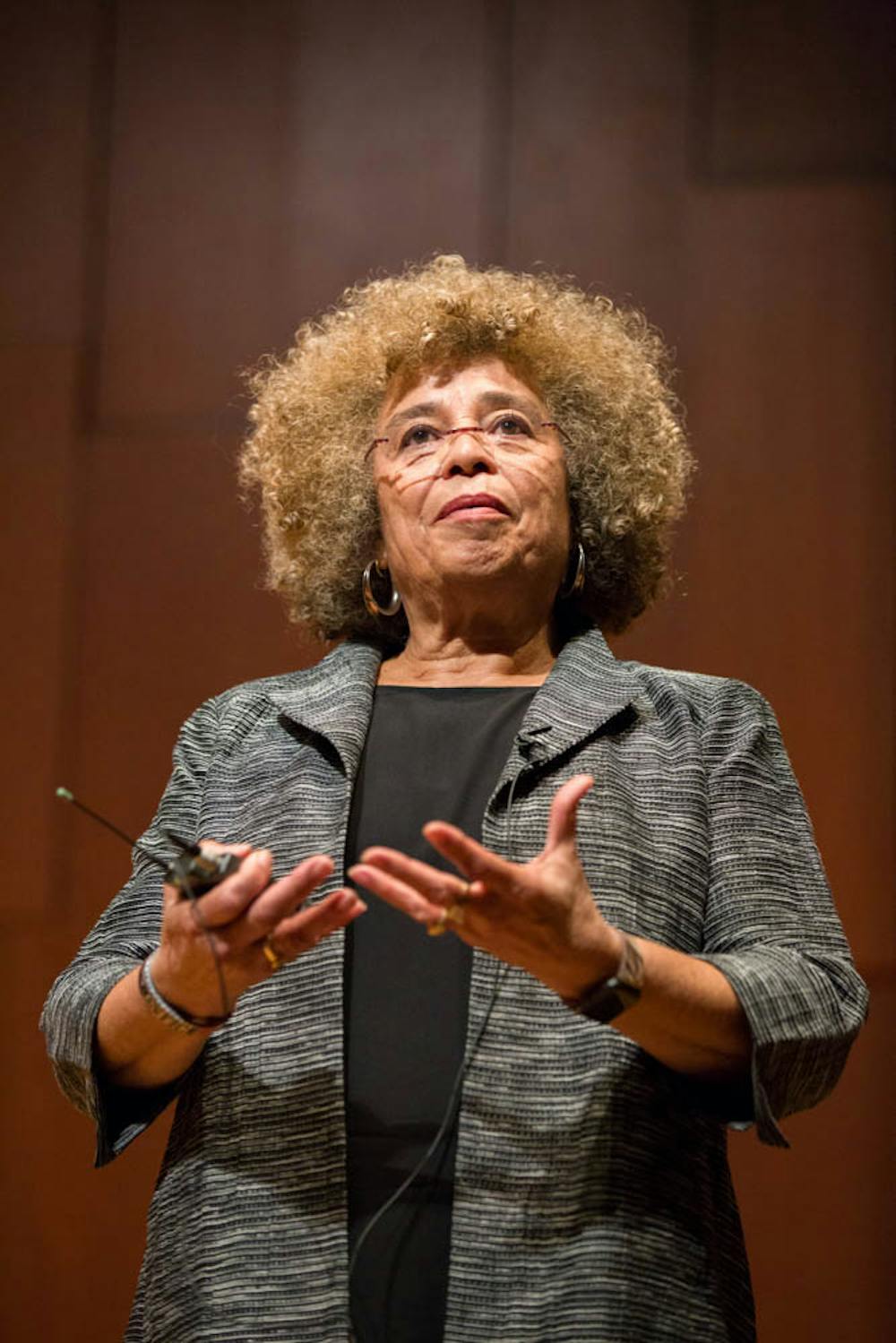Angela Davis, author, educator and lifetime activist captivated at least 600 students, faculty and community members Friday evening with a discussion on prison reform, race relations and gender equality.
Through her impassioned lecture, Davis shed brilliance on topics ranging from Black Lives Matter to the Electoral College system, relating it all to the turbulent politics of the past few months.
At once critical and conversational, the recently retired University of California at Santa Cruz professor’s lecture had a particularly pedological element to it. Davis spoke with a honed, instructive elegance, overlooking a captive audience.
The talk focused on the prison-industrial complex — a term the scholar is famous for coining and the subject of many of her books. Davis, the authority on the phenomenon, spoke of private prisons’ commodification of human lives, noting institutions profit off of a “surplus of people” — disproportionately black males — who have been victimized by former President Ronald Reagan’s War on Drugs. Ultimately, the prison-industrial complex serves to “exacerbate racism and sexism,” Davis said.
But the true theme of the night was broader solidarity. The scholar, with a sense of urgency, spoke of coalescing behind the struggles against systematic racial injustices and societal ills.
“We have to act as if our actions can push us together in the direction of freedom,” Davis said, emphasizing the necessity of mobilizing to “shed the vestiges of slavery.”
Speaking from a youth spent with the Communist Party and the Black Panthers, Davis underscored the capacity of activist movements to achieve change throughout her lecture. She also highlighted millenials’ hand in facilitating progress.
“Young people are always at the forefront of radical struggle,” Davis said. They “always make the most important contributions. One generation is standing on the shoulders of a previous one.”
Evidencing this commitment to the latest generation of activists, the writer delighted in taking questions from students and local Providence and Central Falls high schoolers. She cautioned students of the futility of fast-moving but short-lived social media movements in enacting change, humorously relating her past successful efforts spent mobilizing through “snailmail.”
In a show of her inclination toward scholarship, Davis was also sure to remind students of education’s value.
“This is the only time in your lives where the work that you’re doing is thinking and reading and discussing,” Davis said. “You have the opportunity at this historical moment to translate some of that into activism,” she added, stressing the “sustainable activism” cultivated at universities like Brown.
Students praised Davis’ lecture, noting admiration for her work.
Daniella Balarezo ’18 expressed her adoration for Davis at the night’s end.
Davis’ “amazing lecture made my life,” Balarzo said.
Marguerite Weiss ’20, who waited in line for the book signing following the lecture, joined Balarezo in her enthusiasm.
“It was such an honor to see her, and I’m excited to meet her, even for just a second.” Weiss said.
The lecture, “Freedom Is A Constant Struggle,” is part of the Brown Center for Students of Color’s Black, Asian American, Latinx, Multiracial, Native American and Southwest Asian/North African Heritage Series.





